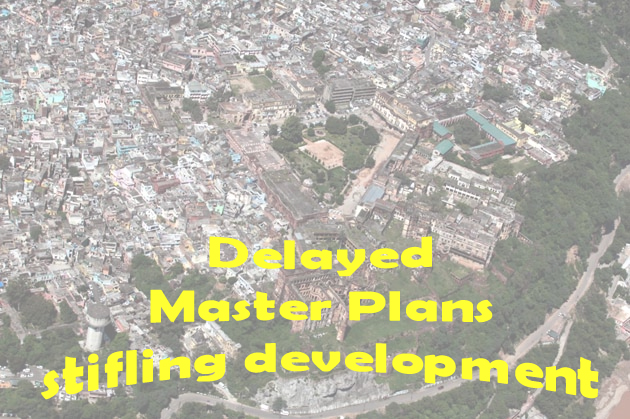Urban development is central to the growth and modernisation of any region, especially in places with complex demographic and geographic characteristics such as Jammu and Kashmir. Master Plans, as statutory instruments, are critical to outlining the physical, economic, and social transformation of towns and cities. They are essential blueprints that ensure that development occurs in a systematic, balanced, and sustainable manner. However, the inordinate delays in finalising the Draft Master Plans for towns like Ramban, Banihal, and Reasi reflect a concerning slackness on the part of the Town Planning Organisation (TPO) of Jammu and Kashmir. This lack of action, despite over two years having passed since their initial drafting, is causing immense disruptions to development activities and raising significant concerns about the future planning of the Union Territory’s urban centres.
The Draft Master Plans for Ramban, Banihal, and Reasi were notified in 2022. Public objections and suggestions were duly invited, and the drafts were even uploaded to official websites. Yet these plans have not been finalized. This prolonged delay not only points to inefficiency but also questions the sincerity of the TPO in fulfilling its primary mandate-guiding the authorities on the sustainable development of cities and towns. The failure to finalise these plans has broader implications than just administrative inconvenience. It affects the very essence of urban planning and governance. A Master Plan is not just a bureaucratic requirement; it is a vision document that shapes the future of towns, determining how land will be used, infrastructure developed, and resources allocated. In its absence, urban areas are vulnerable to haphazard development, unchecked construction, and mismanagement of land resources, all of which can lead to chaotic urban growth that will be impossible to correct in the future. These towns are located along the Jammu-Srinagar highway, a crucial artery for trade and transportation in the region. Without a Master Plan, the local administration is left to operate without clear guidelines, making it challenging to prioritise development projects, manage resources, and anticipate future growth.
This delay makes one wonder how the TPO plans to meet the Government’s ambitious announcement to prepare and finalise Master Plans for all 78 cities and towns of Jammu and Kashmir. This delay casts doubt on the TPO’s capacity and commitment to delivering on its objectives. Moreover, nobody knows the reasons for the delay or where the files are stuck up. Moreover, the lack of communication between the TPO and district administrations has created a sense of confusion. This administrative disarray highlights a significant governance gap, where even basic information about important planning documents is not readily available to local officials.
The consequences of these delays are already being felt on the ground. Development projects are being held up, investments are stalling, and local authorities are left in a state of uncertainty. Without an approved Master Plan, towns cannot make informed decisions about where to build infrastructure, how to manage land resources, or how to plan for future population growth. The delay in finalising these plans is, in effect, paralysing the growth potential of these towns.
At a time when Jammu and Kashmir is undergoing significant political and administrative changes, urban planning should be at the forefront of the region’s development agenda. The Union Territory is positioning itself as a hub of economic activity and tourism, and its towns and cities need to be prepared to accommodate this growth. Yet, the TPO’s failure to finalise these Master Plans reveals a worrying disconnect between the Government’s development goals and the ground realities of implementation. Immediate action must be taken, as this process cannot be allowed to languish any further. The people of these towns deserve a clear vision for their future. Stifled Urban Development is not acceptable. The TPO’s role in this is not optional; it is a critical responsibility and one that must be fulfilled without further delay.
Trending Now
E-Paper


